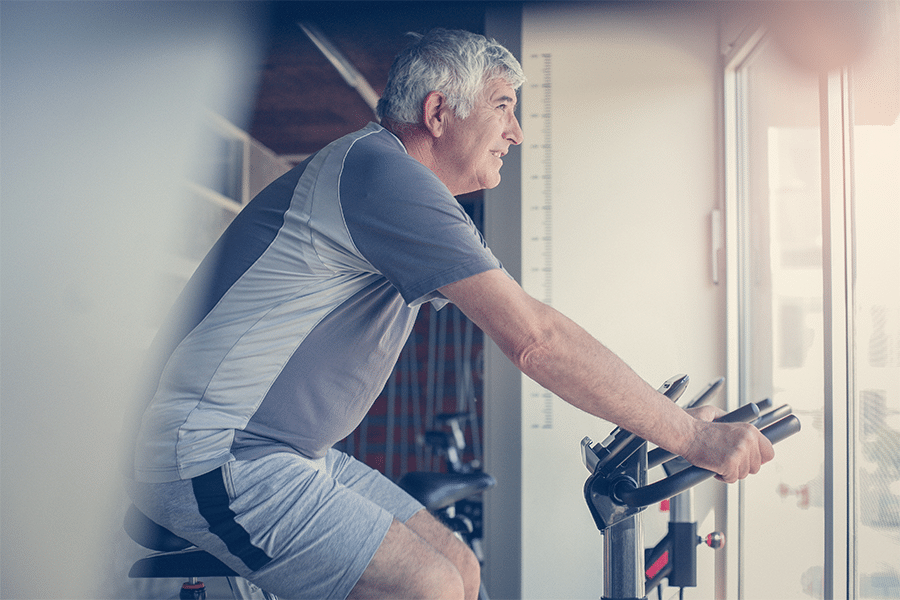Lower BMI at Time of Surgery Associated with Better Patient Reported Outcomes
For those undergoing joint replacement surgery, the process doesn’t start the day of the procedure; instead, preparation should begin weeks or months in advance to help ensure a successful outcome. One of the top ways patients can self-advocate and take an active role in their surgery and recovery process is by lowering their body mass index (BMI). This one step can have a significant impact on both the long-term and short-term success of their joint replacement procedure.
How BMI Affects Joint Replacement Surgical Outcomes
Studies show a direct link between a patient’s BMI and the successful outcome of their joint replacement surgery. To evaluate how a person’s weight affects their pre and postoperative recovery, Laura A. Stock MS along with her colleagues performed a study on 988 patients who were undergoing either a total knee or hip replacement (arthroplasty) at a prominent institute’s joint arthroplasty center. As a guide, each patient was classified under a 5% change in the BMI, with a reduction greater than that percentage considered weight loss and an increase of more or equal to 5% considered weight gain. If the patient recorded a BMI change of less than 5% in either direction, they were categorized as unchanged.
Of the 988 participants, 43.1% underwent THA, while 56.9% had a TKA. Results and outcomes were measured from both patient reports through a process called Patient-Reported Outcomes Measurement Information System Physical Function or PROMIS-PF and their BMIs. The researchers followed each patient, analyzing their post-surgical outcomes at periods of zero to three months, three to six months, and six to twelve months.
The results found that the vast majority of patients didn’t have significant changes to their BMI following surgery, with 92% unchanged at zero to three months, 82% unchanged at three to six months, and 80% unchanged at six to twelve months. While these results show that following surgery, many patients either can’t or choose not actively participate in weight reduction activities, it did provide an interesting look into their pre-operative BMI readings. Those who started at a lower BMI saw a much higher improvement rate than those beginning with a higher number, with Stock herself noting, “Lower BMIs at the time of surgery were associated with an increased functional improvement, suggesting that reducing BMI prior to surgery should be prioritized over postoperative weight loss to improve outcomes of TKA and THA.”
What It All Means
These findings clearly suggest that a lower BMI prior to joint replacement surgery puts the patient in a better position for success and can help make the recovery process easier. While losing weight isn’t easy, the study clearly shows a reduction of only 5% can make a significant difference in the short and long-term prognosis. If you’re facing a joint replacement, there are simple steps you can take to help lose excess weight and better position yourself for your upcoming procedure. It’s important to note that you shouldn’t wait until the last minute and try to crash diet; starting months in advance will help you safely and effectively lose weight without causing potential harm to your body.
Weight Loss Tips
Weight loss isn’t easy, but it doesn’t have to be miserable, either. You can lose weight without feeling overwhelmed or deprived with a few simple changes to your everyday routine. Below are a few tips you can use to shed pounds easily:
Ditch The Processed Foods
Ditch the processed foods and sodas and reach for healthy, whole foods like fruits and vegetables instead.
Add Don’t Subtract
To keep from feeling deprived, focus on adding healthy foods instead of removing bad ones. Filling your plate with delicious vegetables will leave you satisfied and less likely to crave junk food.
Stay Active
Even if you struggle to move, there are low-impact exercises you can do while sitting, allowing you to burn calories and avoid muscle loss.
Drink More Water
Drinking water helps you feel full and fights sugar and salt cravings. Before every meal, have a full glass of water to help you eat less and feel more satisfied.
If you’re facing joint replacement surgery, turn to Kinomatic. Kinomatic VR is a minimally invasive process, modeling your exact anatomy down to the specific grooves and ridges in your bone and ligaments. With Kinomatic, your surgeon has the most detailed map to use during surgery, reducing the amount of resectioning and encouraging faster recovery. The future of joint replacement surgery is here with Kinomatic!
Source:
Laura A. Stock, MS, Jane C. Brennan, MS, Justin J. Turcotte, PhD, MBA, Paul J. King, MD. Published: May 12, 2022 DOI:https://doi.org/10.1016/j.arth.2022.04.029
